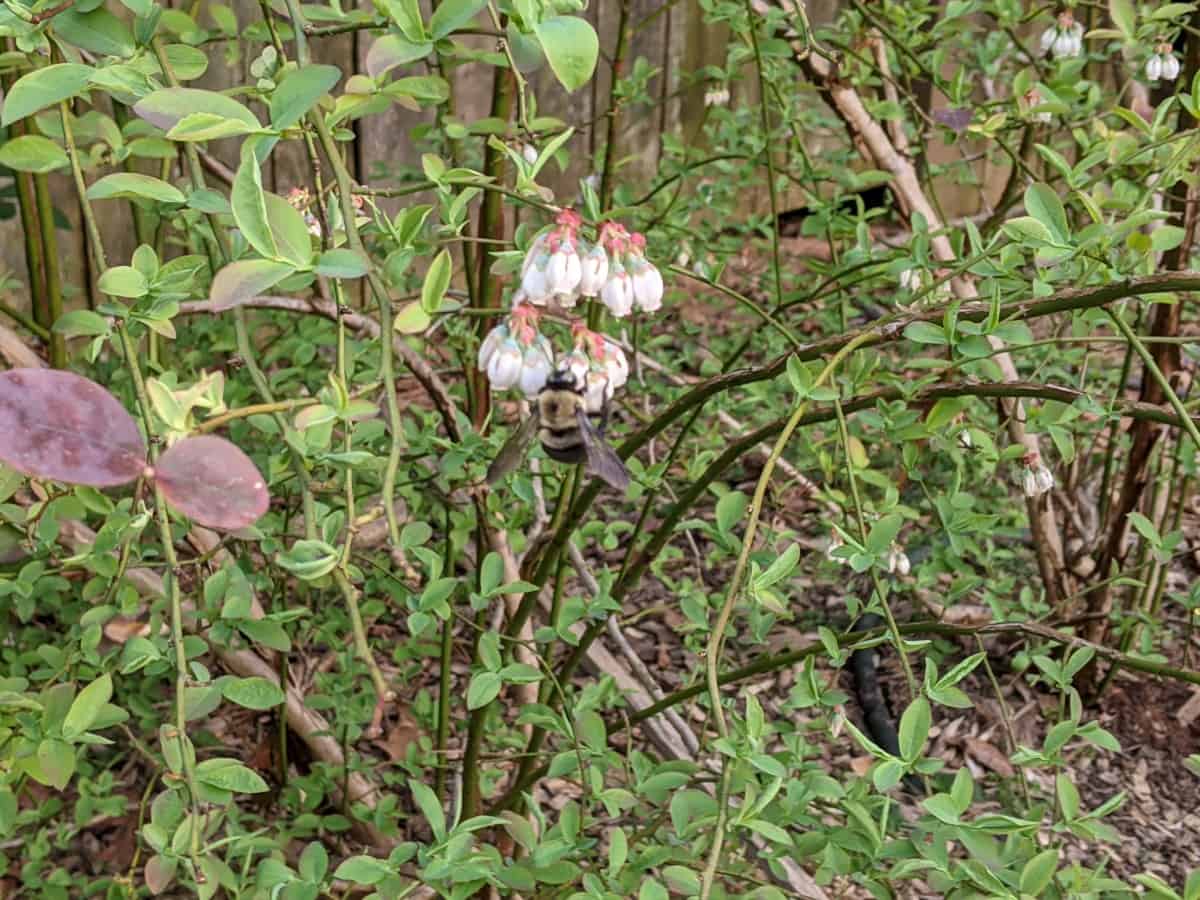Growing a vegetable garden can be a rewarding activity, but it can also be hard work. Some of this hard work does not come from you though, some of it comes from pollinators.
Without pollinators, you will not have a garden that bears many vegetables, if it bears any vegetables at all. So, how do you attract pollinators of all kinds to your garden to get the most vegetables out of it as you can?
A few ways to attract pollinators to your vegetable garden are to stop using pesticides and plant some colorful companion plants in your vegetable garden. You can also add a small shallow birdbath to your garden and if you grow herbs, then let them bloom to attract pollinators.
Every vegetable garden needs a good number of pollinators to be successful. How do you make your garden irresistible to pollinators to get the count of pollinators up? Let us find out.
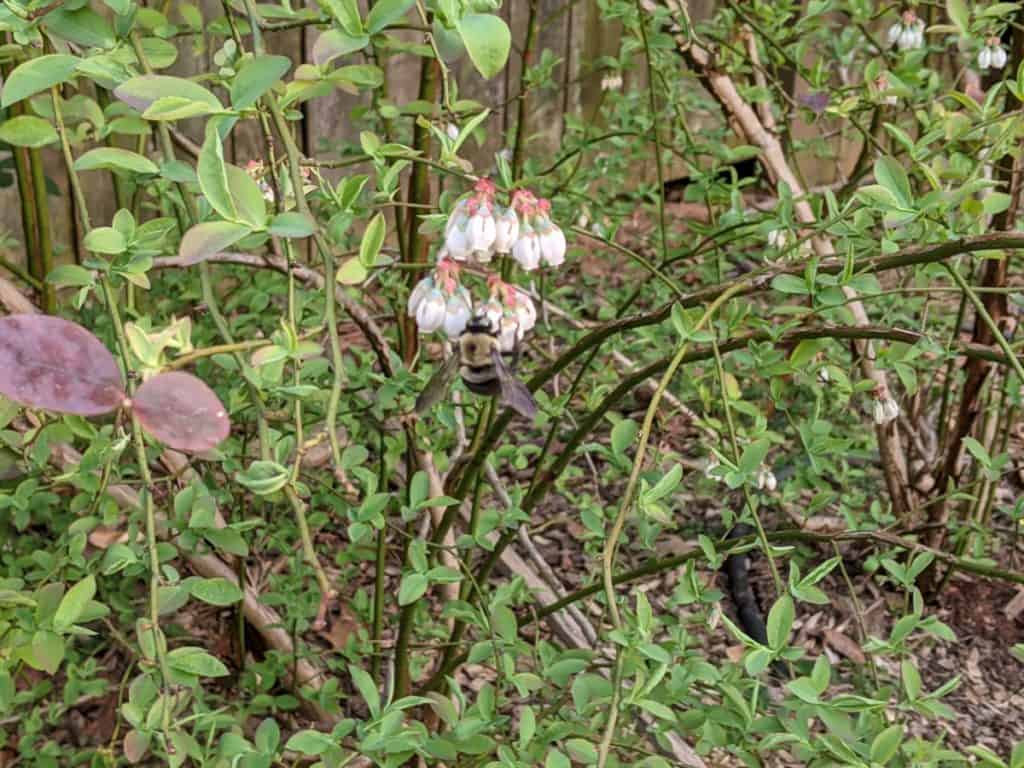
Ways To Attract Pollinators
There are several ways that are easy to implement in your garden that will help you to attract pollinators, which will, in turn, give you a higher vegetable yield for the season. As vegetable gardeners, we need to learn to work with nature rather than against it and make good use of the natural benefit of getting pollinators to come to our gardens.
One of the biggest and most beneficial changes you can make is to stop using harmful pesticides immediately. A lot of pesticides on the market are not selective. This means that when you use them in your garden, you are not only killing the pests, but you are killing the beneficial bugs, like pollinators, in your garden too.
If you have a pest problem in your garden and need to use a pesticide to combat them as you have tried everything else, try to get a selective pesticide and only kill the bugs you are having a problem within your garden.
There are some pollinators and plants that will scare away or deter the pests in your vegetable garden. Some pests don’t like pollinators flying around because they resemble predators, and in combination with plants that will deter them, you will have a winning recipe.
This is another good reason to encourage the pollinators to remain in your vegetable garden for as long as possible.
You can also use companion planting to assist you with attracting pollinators to your vegetable garden. This could be done by planting flowering plants between your vegetables to give the pollinators more incentive to forage in your garden.
For this, you should use plants that are native to your area as pollinators in your area will be most attracted to plants that they are familiar with.
Mix up your flowers that you companion plant with as different pollinators are attracted to different colors. So, to attract as many different types of pollinators as you can to your vegetable garden, make sure you use a large number ofcolors.
Plant your companion plants in bunches. Flowers clustered together tend to attract more pollinators compared to plants that are scattered around your vegetable garden.
You can add some water to your vegetable garden in a small, shallow birdbath as pollinators also require water to survive. So, if you give them a place where they can drink easily, this may help attract them.
If you plant herbs in your vegetable garden, then let them bloom for as long as possible. Pollinators will not be able to resist them, especially if the herbs are mint, basil, dill, oregano, and rosemary.
Pollinators love these herb flowers, and these particular herbs grow into beautiful bushes adding color and a lovely scent to your vegetable garden.
It would help if you also planted lavender around your vegetable garden. This not only attracts pollinators but also has the added advantage of repelling pests such as rats and mice.
These tips and methods are just a small sample of the possibleways to attract pollinators to your vegetable garden, and they should help increase the number of pollinators in your garden.
Remember that you need to use multiple tactics to attract pollinators, as only doing one of these tips will not do much in the way of attracting the pollinators to your vegetable garden.
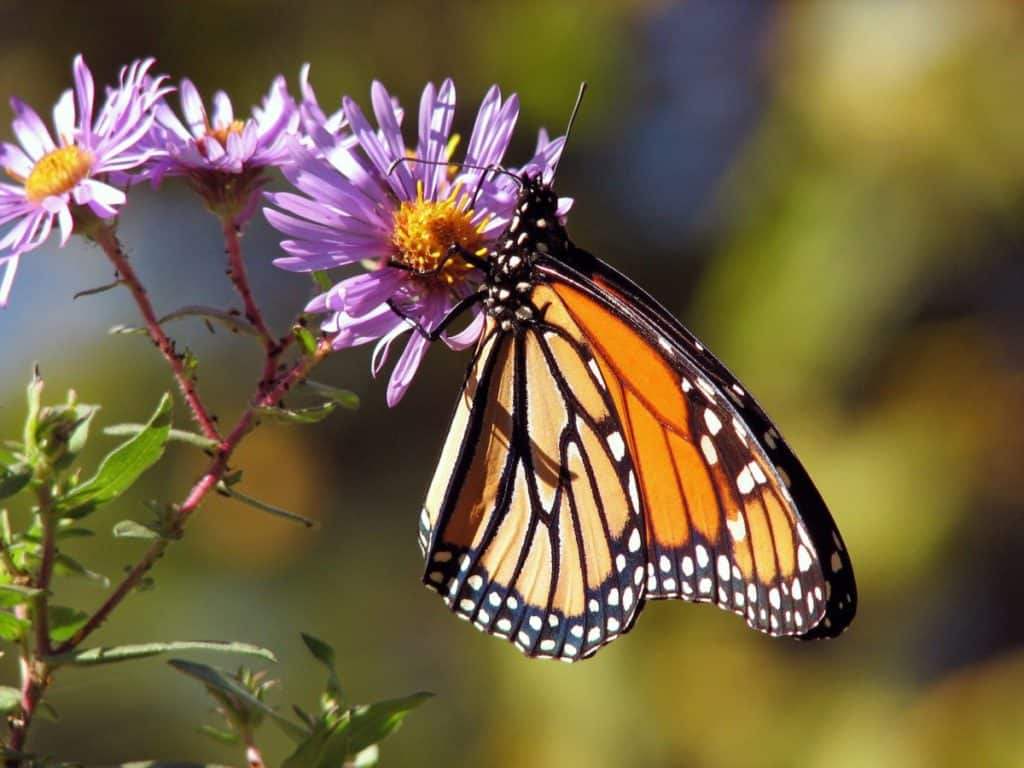
Plants That Attract Pollinators
An effective way to bring in large numbers of pollinators to your vegetable garden is to have a wide variety of plants that you can companion plant with your vegetables.
Having a large variety of companion plants will also attract different types of pollinators to your vegetable garden. This will give you a better success rate and a very high vegetable yield in your garden as your vegetables can be pollinated throughout the day and sometimes at night too by certain nocturnal pollinators.
If you are trying to attract bees specifically to your vegetable garden, then you would want to plant herbs, such as basil, dill, and rosemary in your garden. Bees are also attracted to Purple Coneflowers, blueberry bush flowers, Sunflowers, Wild Lilac, Goldenrod, and Borage, among many more plants.
Bees are an excellent cross-pollinator, and many farmers use them to increase their seasonal crop yields. This is why you would want to have them in your vegetable garden too.
Suppose you want to attract more butterflies and moths to your garden for day and night pollination. In that case, you should plant brightly colored flowers like Daisies, Marigolds, Moonflowers, and Evening Primrose, as these are perfect flowers for these pollinators.
You can also try and plant some native wildflower mixes in your garden, which will help attract these two pollinators to your vegetable patch.
You can also try and attract some beneficial flies to your garden by planting Buckwheat, Chamomile, and Parsley in your garden.
If you are lucky enough to live in areas that are native to Hummingbirds, you can use them to your advantage. Hummingbirds are excellent pollinators.
To help attract them to your vegetable garden, you can plant large patches of very colorful flowers. Luckily, you do not need anything specific, as long as they are colorful. Perhaps fill up a small birdbath every day for them to have a quick dip; this is sure to keep them coming back.
Another good night-time pollinator is bats. To get these pollinators around your vegetable garden at night, you should plant some night-blooming flowers like Four ’O Clocks or gourds in your garden.
If you have a mixture of all these plants in your vegetable garden, then you should not have a problem attracting most pollinators to your garden.
Most of these flowers will attract a wide variety of pollinators to your garden, so if you do not have space for a large number of plants, then you only need to plant a few of these plants, and your garden should still attract pollinators. For small gardens, also try planting herbs and colorful flowers in pots and placing them around your vegetable patch.
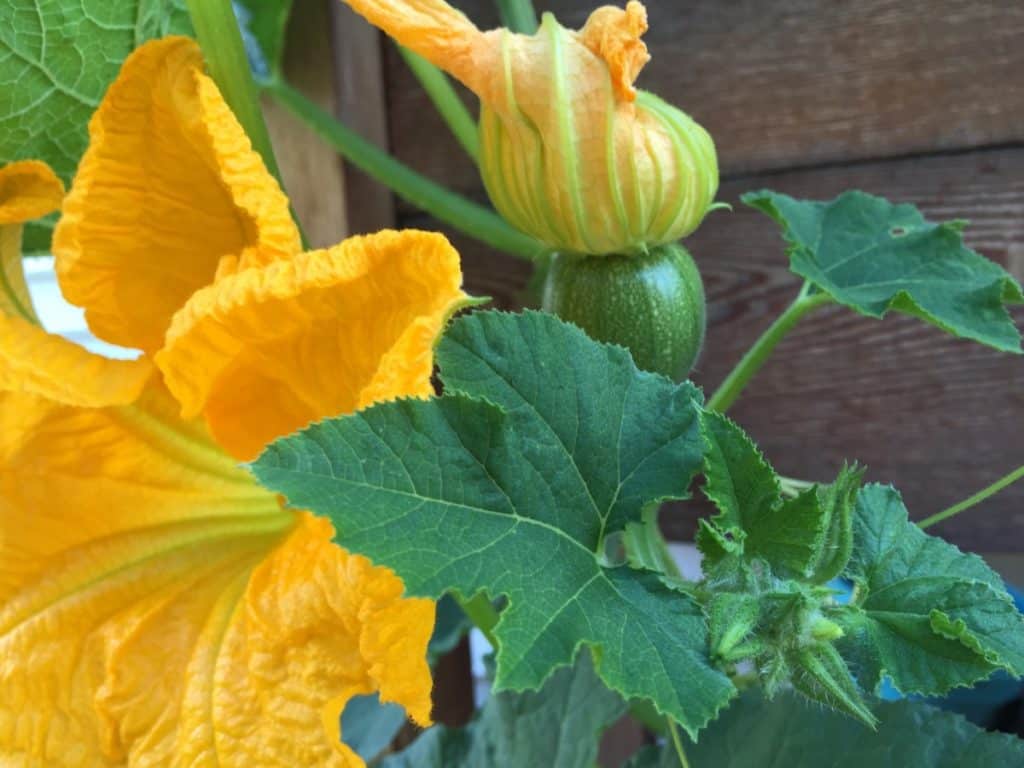
Vegetables That Attract Pollinators
Along with planting some companion plants in your vegetable garden to attract pollinators, you can also grow some specific vegetables in your garden that will help attract them too.
Planting vegetables that pollinators prefer is an excellent way to ensure that the rest of your vegetables get pollinated too.
If you plant squash, pumpkins, and melons in your garden, then you could attract squash bees and carpenter bees to your garden. These particular bees are very good pollinators.
You can plant some tomatoes in your vegetable garden to attract bumblebees, digger bees, honeybees, yellow-faced bees, and sweat bees.
If you do not have a lot of ground space for your vegetable garden, then tomatoes are a great plant to have in your garden as they can grow up and along a trellis, and they can attract a large number of pollinators.
If you can grow almonds, then these are great plants to add to your garden as they bring honeybees, bumblebees, and mason bees to your garden.
These vegetables are a great way to increase the variety of vegetables you have in your garden as well as the number of pollinators in your garden.
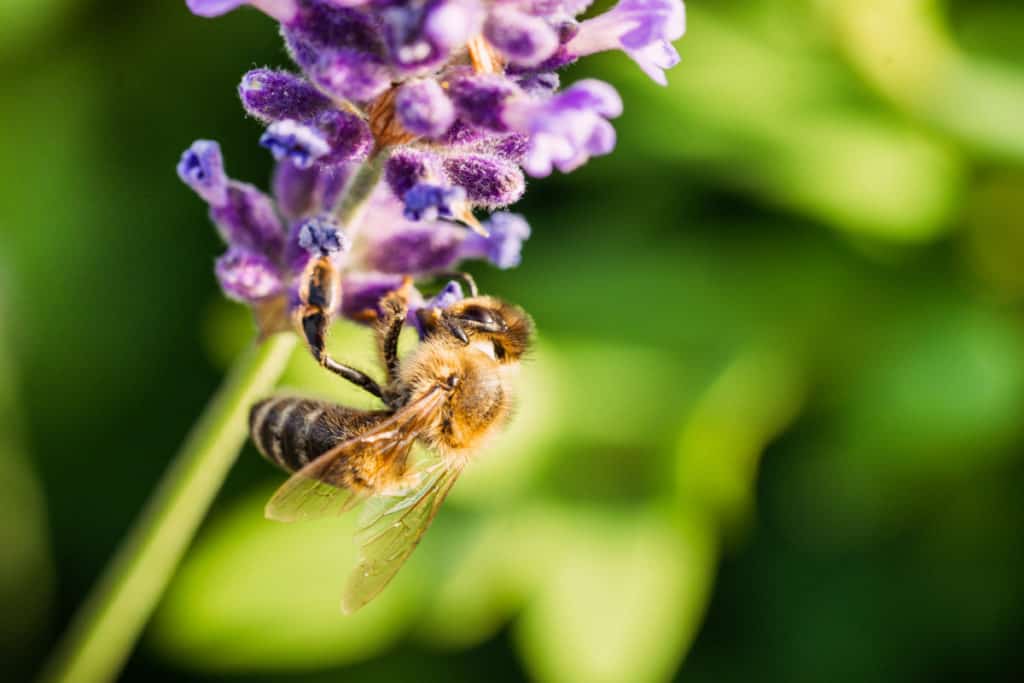
Conclusion
There are many ways to attract pollinators to your garden. The main consideration would be the size of your garden. If you have a smaller vegetable garden, you may want to pick a companion plant that you can use in your cooking, too, as well as the plants that can attract a larger number of pollinators.
This way, your veggies, and your companion plants would be useful in your household.

